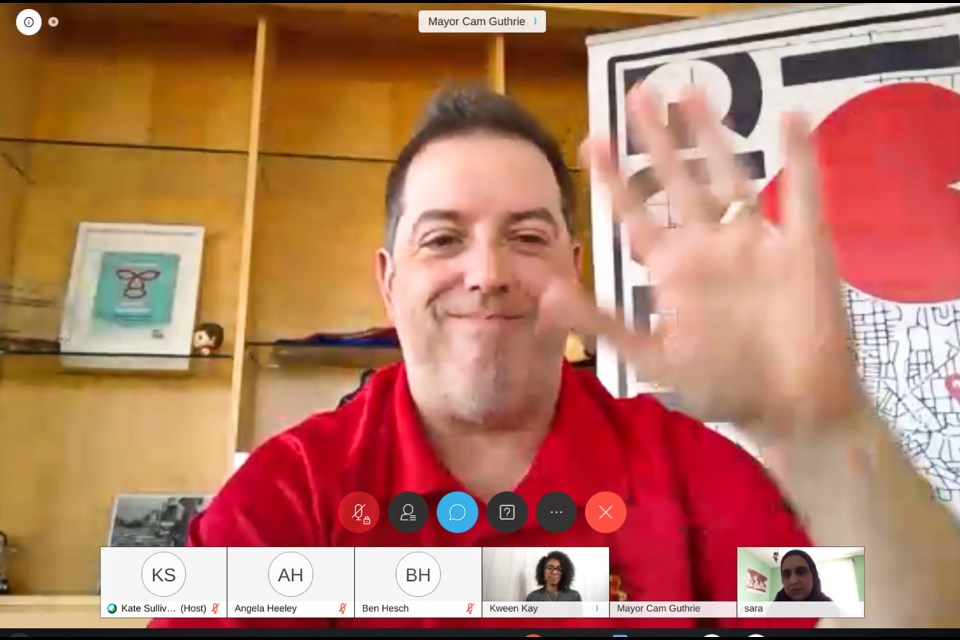Black people facing mental health challenges are often faced with social service agencies where people of colour are underrepresented.
That was one of the prime talking points at the annual Mayor’s Event for Mental Health, which this year was a discussion around the relationship between racism and mental health.
Mayor Cam Guthrie hosted the virtual event on Friday afternoon, where he acknowledged the type of conversations that were to take place following the rise in calls for action in various social justice issues.
“I think it’s very timely and important that our theme this year is exploring the relationship between racism and mental health.” he said.
Sara Sayyed, the director of community services for the Muslim Society of Guelph, and Kween, the executive director of the Guelph Black Heritage Society, were the guest speakers at the event.
Sayyed started the discussion by talking about microaggressions, acts of subtle and unintended racism, that add up overtime. For many individuals, these microaggressions become difficult to cope with on an on-going basis, resulting in mental fatigue.
“It leaves people angry and confused as they're unsure if the actions were intentional or not.” Sayyed said.
She adds these microaggressions can also lead individuals to question themselves and other aspects of their lives, such as clothing choice or hairstyles. In some cases, this can even impact decisions such as what names parents give to their children.
Another issue Sayyed spoke on was the impact Islamophobia on mental health. Since 9/11, Sayyed said there has been a rise in Islamophobia, which has been perpetuated in the messages of political leaders.
For Sayyed, it is important for people of influence, whether its social services, frontline workers, healthcare workers, educators or government officials, to become educated in order to work to remove stressors that are impacting mental health.
After Sayyed, Kween talked about the barriers Black people face with treating mental health, including a lack of representation within social services that understand their challenges, or having an increased likelihood of experiencing restraints to these resources.
Social deterrants, like low income and criminalization, can also affect Black people's ability to treat mental health, effecting how individuals respond to stress, conflict and relationships. Kween said these colonial structures need to be disensembled in favour of creating systems with intersectionality in mind.
Kween also touches on the killings of people like George Floyd, Breonna Taylor, and many more, which have devestating consequences on the mental health of Black people.
"They happen so often that there is no time to grieve." said Kween.
"These moments hurt our whole community."
Although each speaker shared their personal experiences, Sayyed and Kween both emphasised thorughout the event that their stories vary from the experiences of other Black, Indigenous or persons of colour.
"Everyone's experiences, everyone's journeys are different." said Sayyed, "A lot of things need to happen to assist in helping many groups."
